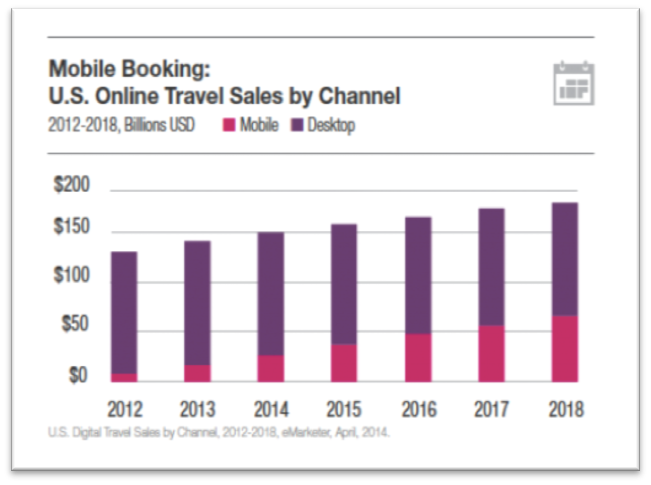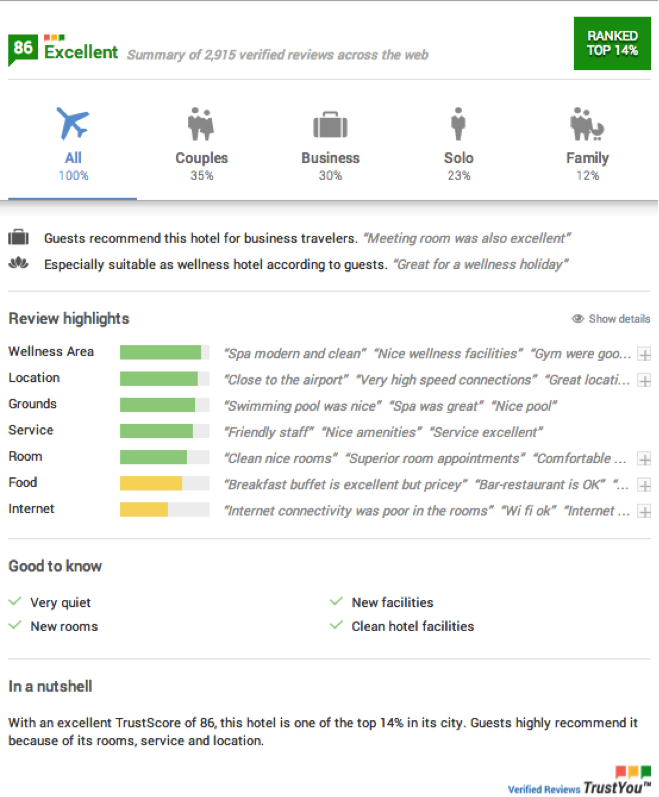Increasing Mobile Bookings in 2015
The November 2014 World Travel Market Global Trends report projects that mobile bookings will account for 35% of online bookings by 2018, and this doesn’t include the travelers who are driven to call by mobile search. A Google study found that 58% of respondents would be extremely/very likely to call a hotel if the capability were available on a mobile search (Google, Click-to-Call Research Study).

The revenue potential for bookings from mobile devices is extraordinary; however, the demand is greater than the industry is currently keeping up with. Only 45% of global hotels currently accept mobile bookings (TripBarometer, Apr 2014). In the meantime, travelers are increasingly using mobile devices to do their travel planning research, and Expedia is reportedly busy developing a way to for travelers to begin a booking on a mobile device but transfer it to a PC.
Ultimately, the drive to book via mobile device begins with a solid, seamless mobile research experience. According to a ComScore report, “exclusive mobile visitors add an incremental 48% over desktop” in unique monthly visitors which means that “hotel sites need to ensure that their web sites are finely tuned to the unique needs of mobile visitors or else risk losing ground to more mobile-friendly rivals.” (ComScore, Get Mobile—Now!)
Statistic after statistic supports web responsive design that will maintain a site’s integrity on any device. A key piece of this web responsive development for hotels to consider is the presentation of travel reviews. Ninety-three percent of travelers use reviews to make travel decisions, yet reading the average review on a mobile device is a clunky, time-consuming endeavor. Just as travel websites in their entirety must evolve to meet the mobile space so must travel reviews.
A 2015 travel study conducted by TrustYou, in conjunction with Donna Quadri-Felitti, Ph.D. at New York University’s Preston Robert Tisch Center for Hospitality and Tourism found that while travelers prefer a combination of full text reviews with summarized reviews in their decision-making process, 61% of respondents preferred to read only summarized reviews on mobile devices. Summarized review content, like TrustYou's Meta-Reviews, distills reviews from across all travel review sites to offer a visual representation of overall traveler sentiment about a hotel. Rather than reading full-text reviews, which average anywhere from 150-250 words or more, review summaries give a property an overall rating and may be customized to offer percentage scores for different aspects of the stay, such as location, ambiance, rooms, food, and service.

This year, it’s projected that online reputation management will see more spend by hoteliers than ever before; it has become a key expenditure. It’s worth noting that travelers are almost 4 times more likely to choose a hotel with a higher review score when the prices are the same (TrustYou, The Effect of Reviews on Hotel Conversion Rates & Pricing). Staying competitive will increasingly include giving travelers the most visually appealing and user-friendly mobile experience, including travel reviews.
*TrustYou’s Meta-Reviews are based solely on verified travel reviews from more than 250 sources worldwide. They do not include data from TripAdvisor.
